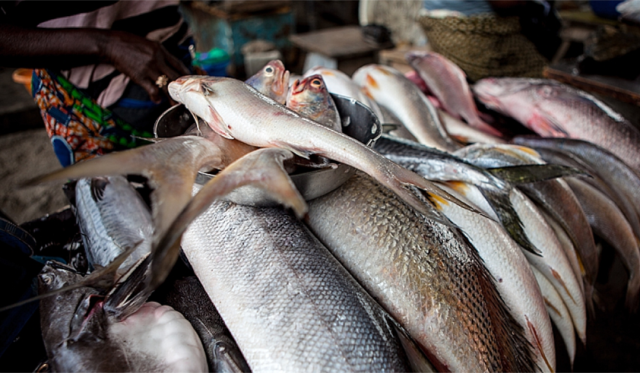The federal government is committed to reducing Nigeria's reliance on fish imports by enhancing local production and providing startup grants to empower youth and women in the fisheries sector.
During a consultative meeting with fisheries cooperative groups in Abuja on Wednesday, Minister of Marine and Blue Economy, Adegboyega Oyetola, outlined the government's strategy to develop aquaculture as a crucial element of food security, job creation, and export competitiveness.
He emphasized the necessity for Nigeria to pursue self-sufficiency in fish production. "The federal government is dedicated to bolstering the fisheries and aquaculture sector through policy initiatives, technical support, and financial inclusion.
We aim to increase domestic fish production, lessen import dependency, and reposition the sector for sustainable growth," he stated.
Oyetola highlighted the importance of empowering youth to participate in aquaculture, which he deemed essential for enhancing food production and reducing unemployment.
He assured stakeholders that the ministry is actively collaborating with both local and international partners to tackle industry challenges.
The minister also mentioned ongoing discussions with the World Bank to secure financial aid for fish farmers and cooperation with the Nigerian Agricultural Insurance Corporation (NAIC) to offer affordable insurance coverage.
"We are also in discussions with the Federal Ministry of Water Resources to implement the successful aquaculture model from the Oyan Dam in other regions," he added.
The ministry's permanent secretary, Olufemi Oloruntola, emphasized its willingness to establish strong partnerships with cooperative societies to foster inclusive sector growth.
Earlier, Mashi Sani, president of the Fisheries Cooperative Federation of Nigeria (FCFN), proposed a Sustainable Livelihoods and Fish Food Security Initiative (SLESI) aimed at improving livelihoods throughout the fisheries value chain.
Sani proposed a budget of N75 billion over three years to create one million sustainable jobs, decrease post-harvest losses by 50 percent, and increase national fish production by 35 percent.
He urged the Federal Ministry of Marine and Blue Economy to adopt and fund the SLESI in collaboration with the FCFN to ensure sustainable livelihoods, guarantee national food security, and advance Nigeria's blue economy.
Additionally, Sani called on the government to address ongoing issues such as inadequate transportation, poor market connections, and insufficient technical support systems.




















